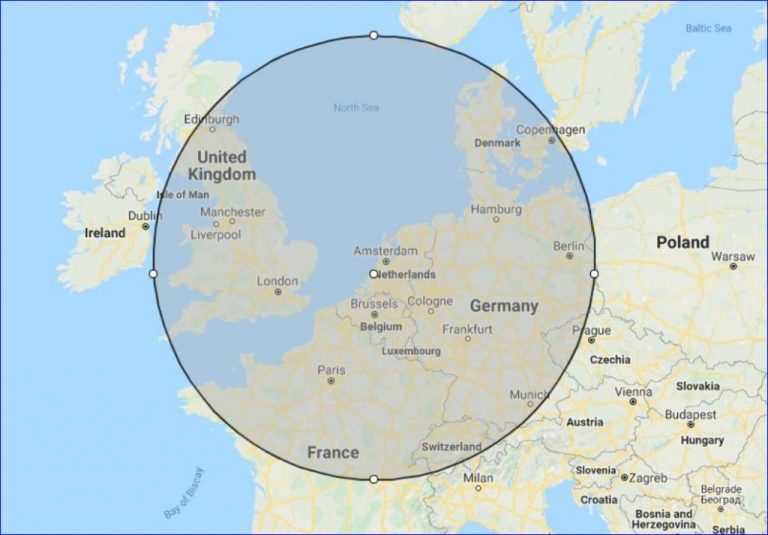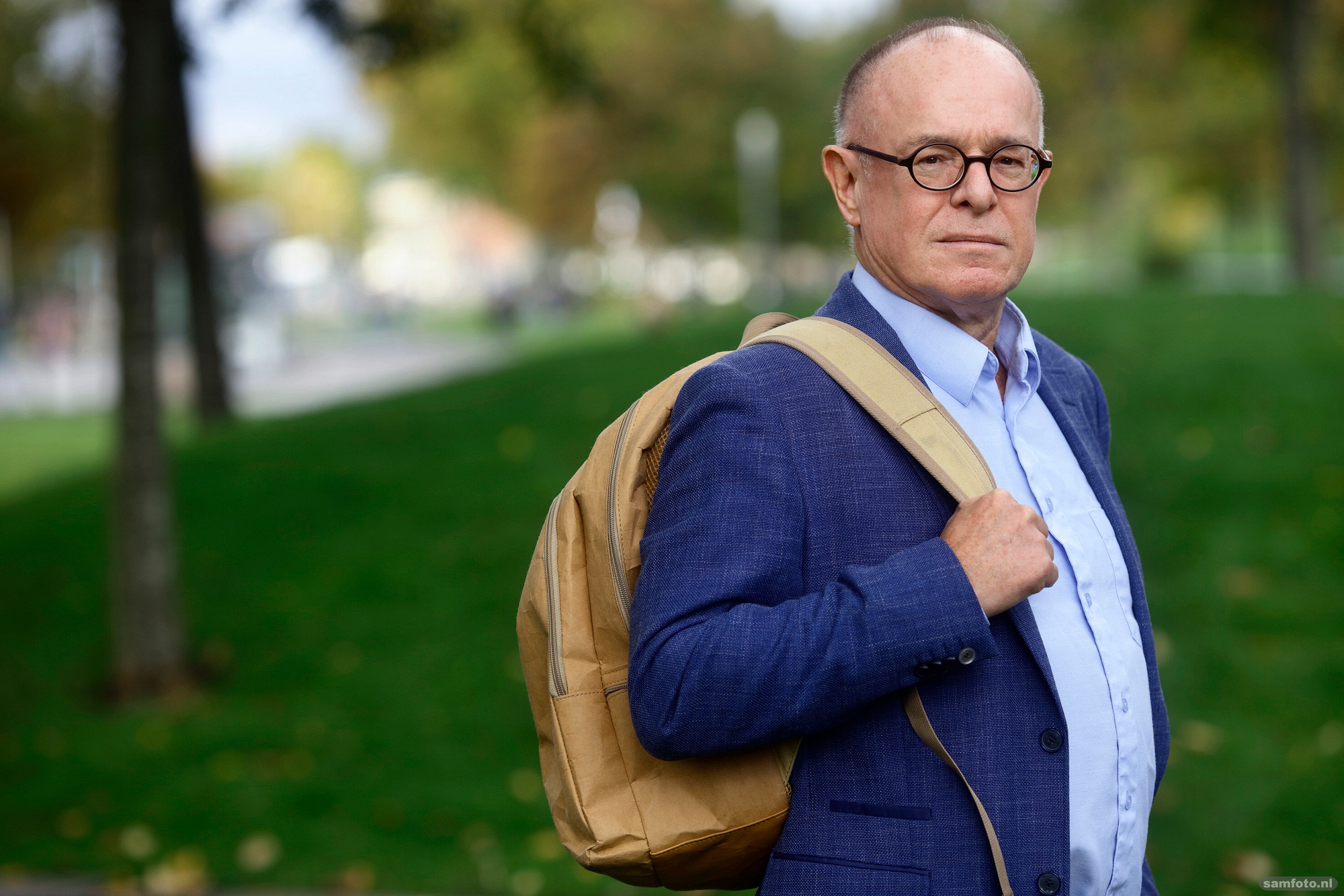Gerrit Kahlman was appointed Coordinator Sustainable Operations on 1 July. What does this position entail? A chat about meat, business travel and paper rucksacks.
(Photo: Sam Rentmeester)
Lees het originele artikel in het Nederlands
What are your most important objectives as Coordinator?
“Bringing together all the sustainable initiatives in TU Delft’s services. Proposals are already being rolled out. I am involved in the discussions around these and if I can contribute anything, I do so. In terms of proposals that need to be further developed, I am mandated to let department managements, researchers or student teams work with each other.”
What was the first thing you did after your appointment?
“The most important thing was to delve into the issues. I discussed sustainability with department management. I am currently looking at electricity and gas supply options with Campus and Real Estate. Finance, where I have my office, has a wonderful initiative to train controllers and project administrators on sustainability. I have held job interviews with students for the Green TU, previously known as the Green Office. I am in discussion with researchers about how we can contribute. The most extensive exercise is the CO2 Roadmap TU Delft report. This was a real gift – up to now I have not seen such a detailed description of CO2 emissions at TU Delft.”
The CO2 Roadmap TU Delft by Andy van den Dobbelsteen and Tess Blom show that the biggest source of CO2 emissions on campus is the animal products in the canteen. The researchers would like to see healthy food options become cheaper and food with a higher environmental footprint more expensive. Will TU Delft place more conditions on the caterer, Cirfood Nederland?
“If that’s the case we can certainly discuss it with the caterer, but we can also discuss it with people who bring food from home. It’s about raising awareness. The snacks at our conference were sustainable – no meat and delicious. The credo ‘practice what you preach’ should prevail at parties, gatherings and meetings. It is not difficult to make a positive contribution. You need to take doable steps. The big steps lie in things like choosing electricity suppliers and sources. There needs to be a balanced moral consciousness.”
What do you mean?
“You should not force people. They can make their own choices within a spectrum of sustainable options.”
Heating the TU Delft buildings is the second largest source of CO2 emissions. What can TU Delft do about this?
“The old buildings are connected to the power plant and the new buildings to geothermal heating. The power plant runs on gas and consumes a lot of energy. At the moment we are heating the old buildings with hot water. If you reduce the temperature you consume less energy, and there may be other energy options, but you also need to design buildings differently. From a sustainability point of view, I would say first look at the options there are for old buildings. New builds do not by definition guarantee a better research and learning environment. It does not make sense to come up with expensive solutions, but to adapt buildings relatively economically.”
What is TU Delft doing about sustainable energy consumption?
“We are buying electricity from an offshore wind platform in the North Sea. This is good step towards sustainability. Our power plant is also supplying some energy and there are still places available for horizontal or vertical solar panels. EEMCS, for example, could have more vertical panels.”
Do you have any idea of how many flights are taken at TU Delft?
“The total number of kilometres flown is 33,000,000 a year. (According to Van den Dobbelsteen and Blom 33,332,774 in 2018, or 6,149 kilometres per employee, Eds.) I support train travel for anyone travelling up to 700 kilometres. For travel above this, they can fly. There are trains to all the major cities where conferences are held. The advantage of the train is that you have more space, you can work better, and, up to 700 kilometres, it’s probably faster. You always need to be at airports hours ahead of the flight.”
(continue reading under illlustration)


This is where you get to 700 kilometres from Delft.
Would you agree to a maximum number of flights per person per year?
“No, I couldn’t say. Some researchers may have a couple of essential conferences that happen to fall within one year. They must be able to attend. Let’s first look at the distance. There’s nothing wrong with travelling by train.”
Travelling by train takes longer.
“Perhaps, but not up to 700 kilometres. If you fly 700 kilometres, you have the travel time of taxis, the flight, waiting and taxis to the hotel. I doubt that it would be slower by train. And you make significant leaps in sustainability if you travel by train.”
I talked to student Marie Sam Rutten who took the train to Shanghai for her exchange.
“Hats off to her. There are now many high speed rail options in China. In Japan too you can travel huge distances in a relatively short time. And the train frequency is high. And the coffee is good in the Japanese trains – that’s important!”
Rutten wondered if people really need to attend every conference. Maybe they could use Skype?
“That is, in any case, an option. The CO2 roadmap TU Delft does not yet go that far, but it was an issue during the conference last week. Some conference sessions could be done by Skype.”
But at the same time, TU Delft is working on flying comfortably in the Flying-V.
“Good, isn’t it?”
But that’s not consistent.
“It does not fall under operations (Kahlman’s area, Eds.), but nevertheless, you still need to consider aviation efficiency. If you are able to reduce the CO2 component by flying more energy efficiently, you will reduce the CO2 emissions. The two things are separate: reducing the number of flights you take and the development of new aircraft. And if you do fly, do it as energy neutrally as possible. We should not stop this research, but lead it. There are few trains from here to the United States. But I hear what you’re saying.”
What do you do about sustainability?
“I walk to work and eat vegetarian several times a week. I also see where I can buy sustainable clothing and my rucksack is made of recycled paper.”
A rucksack made of paper? One downpour …
“No, don’t worry, it’s already been wet! They tested it and you can shower with it. It also has a compartment for the laptop. It looks like leather. I also have a throw made of recycled PET bottles. In Portugal I found a business that makes shoes from coconut husks. It takes some time to find, but there are options.”
What can staff and students do to help reduce their CO2 emissions?
“The Green Office student initiative will be overhauled and will become Green TU. I think that we should invite student teams to all the TU Delft’s sustainability initiatives. We have 25,000 students so let them join in. They really want to, are exceptionally motivated and have highly creative ideas.”
And staff?
“Come to work by public transport and bicycle. Make conscious decisions about your food choices. Staff need to become more aware, but TU Delft also needs to help raise that awareness.”
When would you be satisfied?
“When we have achieved most of the objectives of the CO2 Roadmap TU Delft in 2030. This would mean that we have reduced most of the CO2 footprint of our electricity, gas, mobility, travel, food and waste. This will be 90% to 95% less emissions than now.”
That is ambitious.
“Van den Dobbelsteen has sketched various areas to look at and we still have 10 years to go. If you include compensation by planting forests, you will go a long way.”
- There will be an international conference on campus about the CO2 Roadmap TU Delft on 12 December 2019.
Do you have a question or comment about this article?
c.j.c.vanuffelen@tudelft.nl


Comments are closed.